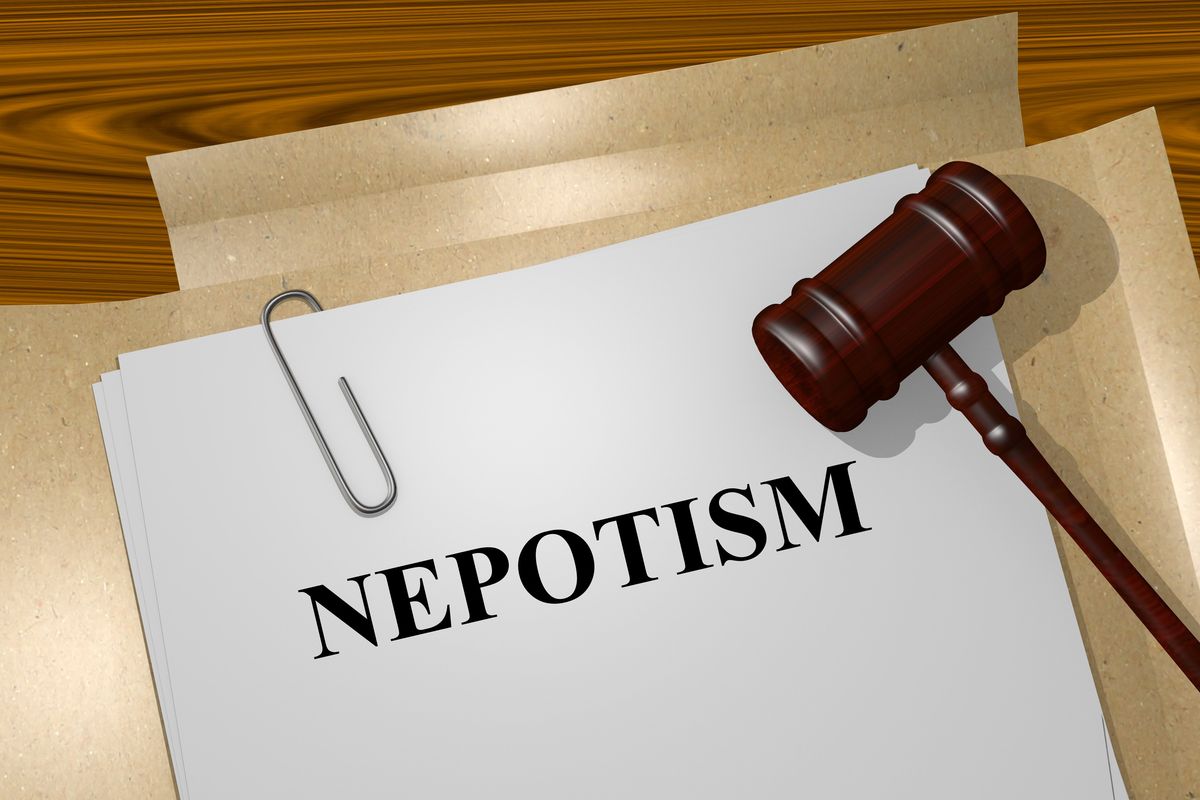The Chains of Nepotism: Meritocracy and the African Job Market

Introduction
Across the African continent, countless young graduates step into the job market armed with first-class degrees, glowing recommendations, internships, and professional certifications. They are confident that hard work and merit will open doors to opportunity. Yet, reality often tells a different story. Months of unanswered applications and rejection emails end in frustration, only to discover that the very positions they fought for were handed to someone with the right family name or personal connection. This reality is all too familiar, from Lagos to Nairobi, Accra to Johannesburg, where success is often determined less by what you know and more by who you know.
This tension between nepotism and meritocracy has become one of the defining struggles of Africa’s job market. As the continent celebrates its youthful population and potential demographic dividend, a pressing question lingers: Will talent and hard work be enough, or will family ties and connections continue to chain opportunities?
Understanding Nepotism in Africa
Nepotism, the act of favoring relatives or close associates in opportunities or promotions, is not uniquely African. But in Africa, it has deep cultural and historical roots. In communal societies where the family unit forms the bedrock of survival, loyalty to kin often takes precedence over abstract principles of fairness.
Colonialism entrenched patronage networks, as colonial administrators often rewarded loyal chiefs or families with positions of power. Post-independence, many African governments continued this system, where leaders appointed allies, family members, or tribal affiliates into lucrative roles.
Nepotism in Africa is not always perceived as unethical, in some communities, helping relatives is seen as a duty, not corruption. Yet, when this cultural norm clashes with the principles of meritocracy, it creates a breeding ground for inefficiency and exclusion.
The Meritocracy Dream vs. Nepotistic Reality
Meritocracy promises a world where talent, education, and skills determine success. Across Africa, governments and schools encourage youth to “work hard” and “study well” with the assurance that opportunities will follow. However, the reality tells a different story.

In Nigeria, nepotism has become synonymous with government recruitment. Reports and projects have shown how political appointees often hand key positions to relatives or allies, bypassing qualified candidates. In Kenya, tribal affiliation is a strong determinant of public-sector hiring. In South Africa, affirmative action policies under Black Economic Empowerment (BEE) were designed to redress apartheid inequalities, but critics argue they have at times fostered cronyism.
A report revealed that a large number of young Africans believe personal connections are more important than qualifications when seeking jobs. This belief corrodes trust in education systems and erodes the confidence of youths who work hard but are sidelined.
Consequences of Nepotism on Youth and Economy
The consequences of nepotism are profound, rippling across social, economic, and psychological spheres.
Unemployment Crisis: Africa already faces a staggering youth unemployment rate. According to the African Development Bank, over 60% of Africa’s unemployed are young people. Nepotism worsens this by shutting out qualified candidates in favor of insiders.
Brain Drain: Frustrated by limited opportunities at home, skilled Africans migrate abroad in search of fairer systems. A 2022 UN report estimated that Africa loses billions annually in human capital flight.
Productivity Loss: When positions are filled by unqualified hires, organizations suffer inefficiency. Public institutions in particular are crippled by this practice.
Erosion of Trust: Youths lose faith in education, governance, and institutions. They disengage politically, fueling cynicism and apathy.
Nepotism is not just a moral issue; it is an economic sabotage that drains Africa of innovation and progress.
The “Who You Know” Argument — Protection or Poison?
In fairness, many Africans argue that “who you know” is not entirely negative. In environments where jobs are scarce and trust is low, connections can provide security. Hiring a cousin or a friend’s child may be seen as guaranteeing loyalty and reducing risk. In societies where corruption scandals are frequent, some employers genuinely believe they are safer putting opportunities in the hands of familiar faces rather than strangers.
But there is a thin line between networking and nepotism. Networking leverages relationships but still requires competence; nepotism disregards competence altogether. The danger is when the latter becomes normalized, creating a culture where youth abandon merit in pursuit of patronage.

Consider the story of a young graduate, top of her class and armed with all the right credentials. But for months, she sent out résumés, sat through interviews, and waited for calls that never came, and then one day, she stumbled across a former classmate, someone who barely scraped by academically but now holds a senior role in a reputable company. The secret? A powerful uncle in government. For her, the realization was crushing: her excellence mattered less than her lack of “the right people.”
This fictional reality is not unique to her alone, it is the reality of thousands of Africans. Across the continent you would see a small business owner losing a government contract, not because of weak proposals, but because another bidder had family ties within the awarding ministry. “It’s not about being good enough,” “it’s about being connected enough.” Stories like this echo through the streets of Accra, Lagos, Kigali and Johannesburg — tales of doors closed not by incompetence but by invisible gatekeepers with familiar last names.
And yet, some argue there’s a paradox here. The same culture that closes doors can also open them. Many African professionals today admit that their first job came through a family introduction or a mentor’s recommendation. For them, it wasn’t nepotism, it was survival in a competitive environment where résumés alone get lost in the pile. But this gray area raises uncomfortable questions: at what point does survival tip into injustice? And when does the search for opportunity become a slow erosion of meritocracy itself?
Breaking the Chains: Can Africa Truly Embrace Meritocracy?
There are glimmers of hope.
Tech Startups: Many African startups are championing skills-based hiring. In Nigeria’s tech ecosystem, firms like Andela prioritize coding ability over personal connections.
NGOs & International Firms: Organizations such as the UN and foreign multinationals have stricter HR policies, giving more room for merit-based recruitment.
Digital Platforms: LinkedIn, Upwork, and other digital platforms are slowly bypassing traditional gatekeepers, giving skilled youth direct access to opportunities.
Education Reforms: Some African universities are focusing on practical skill-building, preparing graduates to thrive in entrepreneurial spaces rather than waiting for nepotistic systems.
A Call for Systemic Change
Breaking the chains of nepotism requires collective will.
Governments must enforce transparent recruitment policies and merit-based promotions in public institutions.
Organizations should implement anonymous hiring processes that prioritize performance and competence.
Youth must balance networking with skill-building, ensuring they are competitive regardless of connections.
Society needs a cultural shift, where competence is valued as much as kinship.
Only when these shifts align can Africa move toward a meritocratic job market that truly harnesses its demographic dividend.
Conclusion: Rethinking the African Job Market
Across the continent, countless young people eventually find their place in the workforce, often not through merit alone, but by pairing their skills with relentless networking and connections. Yet the bitter lesson remains: in many parts of Africa, merit without influence is too often invisible.
The bigger question lingers: What kind of Africa do we want?An Africa where surnames and bloodlines dictate futures, or one where talent, skills, and innovation break ceilings? The chains of nepotism weigh heavily, but they are not unbreakable. Africa’s future depends on whether its systems can evolve into ones where competence triumphs over connections, where talent is recognized, effort is rewarded, and where stories of unfair advantage become the rare exception rather than the rule.
You may also like...
When Sacred Calendars Align: What a Rare Religious Overlap Can Teach Us

As Lent, Ramadan, and the Lunar calendar converge in February 2026, this short piece explores religious tolerance, commu...
Arsenal Under Fire: Arteta Defiantly Rejects 'Bottlers' Label Amid Title Race Nerves!

Mikel Arteta vehemently denies accusations of Arsenal being "bottlers" following a stumble against Wolves, which handed ...
Sensational Transfer Buzz: Casemiro Linked with Messi or Ronaldo Reunion Post-Man Utd Exit!

The latest transfer window sees major shifts as Manchester United's Casemiro draws interest from Inter Miami and Al Nass...
WBD Deal Heats Up: Netflix Co-CEO Fights for Takeover Amid DOJ Approval Claims!

Netflix co-CEO Ted Sarandos is vigorously advocating for the company's $83 billion acquisition of Warner Bros. Discovery...
KPop Demon Hunters' Stars and Songwriters Celebrate Lunar New Year Success!

Brooks Brothers and Gold House celebrated Lunar New Year with a celebrity-filled dinner in Beverly Hills, featuring rema...
Life-Saving Breakthrough: New US-Backed HIV Injection to Reach Thousands in Zimbabwe

The United States is backing a new twice-yearly HIV prevention injection, lenacapavir (LEN), for 271,000 people in Zimba...
OpenAI's Moral Crossroads: Nearly Tipped Off Police About School Shooter Threat Months Ago
ChatGPT-maker OpenAI disclosed it had identified Jesse Van Rootselaar's account for violent activities last year, prior ...
MTN Nigeria's Market Soars: Stock Hits Record High Post $6.2B Deal

MTN Nigeria's shares surged to a record high following MTN Group's $6.2 billion acquisition of IHS Towers. This strategi...






